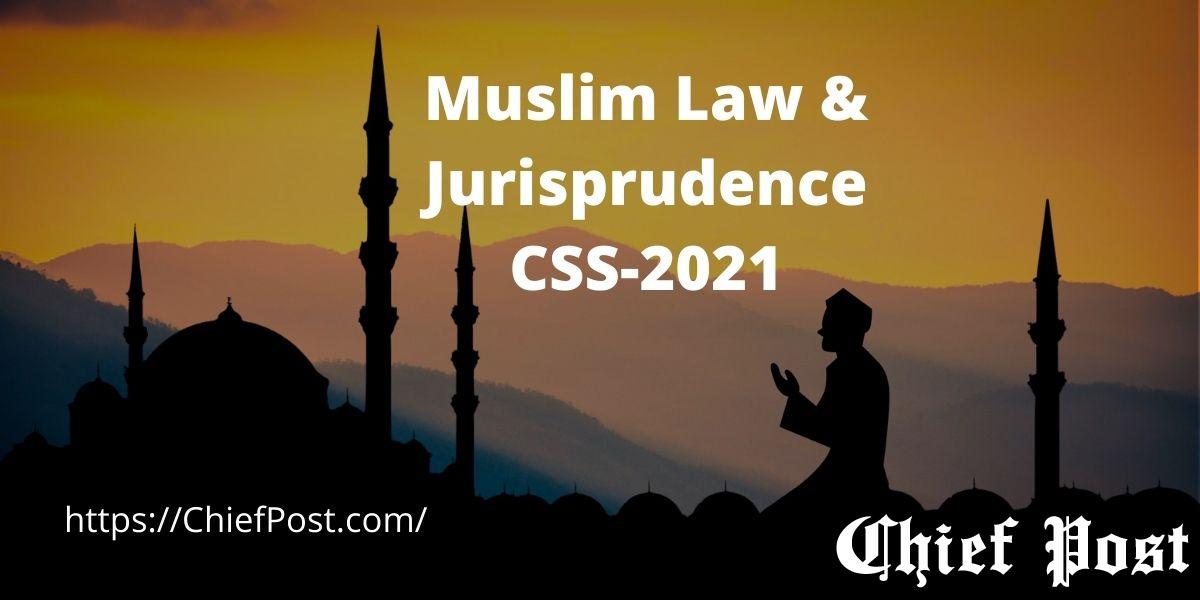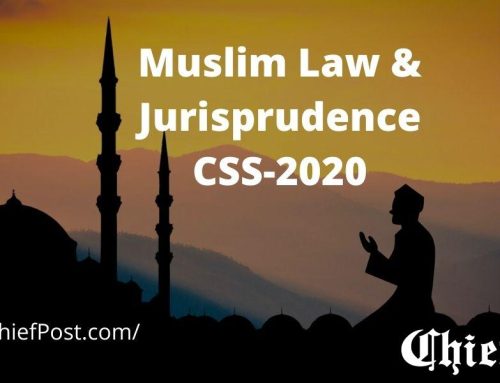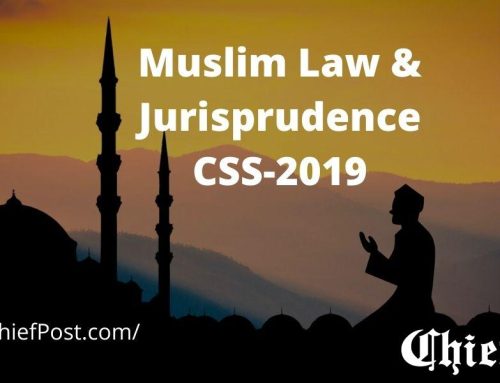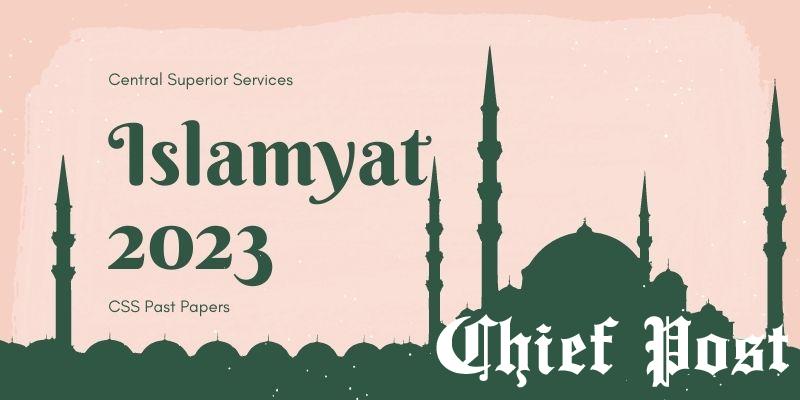
Muslim Law and Jurisprudence 2021 — CSS Past Paper
FEDERAL PUBLIC SERVICE COMMISSION
COMPETITIVE EXAMINATION-2021
FOR RECRUITMENT TO POSTS IN BS-17
UNDER THE FEDERAL GOVERNMENT
Muslim Law and Jurisprudence
TIME ALLOWED: THREE HOURS
PART-I(MCQS): MAXIMUM 30 MINUTES
PART-I (MCQS) MAXIMUM MARKS = 20
PART-II MAXIMUM MARKS = 80
NOTE:
- (i) Part-II is to be attempted on the separate Answer Book.
- (ii) Attempt ONLY FOUR questions from PART-II. ALL questions carry EQUAL marks.
- (iii) All the parts (if any) of each Question must be attempted at one place instead of at different places.
- (iv) Candidate must write Q. No. in the Answer Book in accordance with Q. No. in the Q.Paper.
- (v) No Page/Space be left blank between the answers. All the blank pages of Answer Book must be crossed.
- (vi) Extra attempt of any question or any part of the attempted question will not be considered.
PART-II
Q. No. 2.
Explain the provisions of Section 4, Muslim Family Laws Ordinance, 1961, about the right of inheritance for the orphaned grandchildren. Evaluate the arguments for and against this law from the perspective of repugnancy with Islamic Injunctions. (20)
Q. No. 3.
Elaborate how the issue of apostasy of Muslim women in British India prompted the Hanafi scholars to find solutions for the problems of married women in the Maliki School and how their efforts culminated in the form of Dissolution of Muslim Marriages Act, 1939. Also explain reasons for this Act’s becoming almost redundant in Pakistan. (20)
Q. No. 4.
“For you, there is life in qisas.” (Qur’an, 2:179). Elaborate the implications of this Divine Injunction in the light of the venous theories of punishment, such as retribution, deterrence, reformation and prevention. (20)
Q. No. 5.
Does Islamic law distinguish between the consequences of direct and indirect participation in hostilities? Also explain what rules and principles of Islamic law are violated by suicide attacks. (20)
Q. No. 6.
How the classical Muslim jurists defined riba when, unlike many of the contemporary scholars, they did not distinguish between the riba of the Qur’an and the riba of the Sunnah? Explain the implications of considering riba a mujmal (unelaborated) term of the Qur’an, which has been elaborated by the prophetic traditions. (20)
Q. No. 7.
Define Sunnah and explain the inseparable bod of the Sunnah with the Quran by highlighting in particular how the Sunnah elaborates the meaning of the Qur’an. (20)
Q. No. 8.
Write short notes on any TWO of the following: (20)
- Imam Shafi’ I as the master-architect of Islamic jurisprudence.
- Meaning and scope of ijtihad.
- Implication of positive command (amr) and negative command (nahy) for various legal rules.
**********










